This cultural immersion tour from Shanghai is perfect for first-time visitors planning a 2-week vacation to China. This 11-day tour includes not only the top things to do in Shanghai but also all the essential attractions in China. It’s also the best choice for those who want a Beijing Great Wall tour from Shanghai, because Shanghai is one of the most accessible cities in China. You maybe find a better price flight arriving in Shanghai than in Beijing or Hong Kong. You could pay respect to the Jade Buddha in a serene temple, delve into the culture with visits to beautiful West Street, visit the Terracotta Warriors and Horses Museum face to face and gaze at the collections in the Forbidden City in awe. We love our work and showcasing our country. Your private Chinese culture tour, led by knowledgeable and passionate guides, will give you a local perspective of what China is really like. And their in-depth commentary will show you the history, culture, and modern life in China. During the tour, we'll also give you the best recommendations for shopping, bars, restaurants, markets, and our favorite photo opportunities. It's the real story of China-you can be a part of it.

Shanghai is one of the most intriguing cities in the world. Spanning more than 6,340 square kilometers, Shanghai is larger than New York and Los Angeles combined. This vast area includes an amazing array of unique historic places and modern elements just waiting to be discovered. When you arrive at Shanghai airport, your warmhearted tour guide and the driver will meet and welcome you at the arrival hall and take you to the hotel to rest.
Free time suggestion:
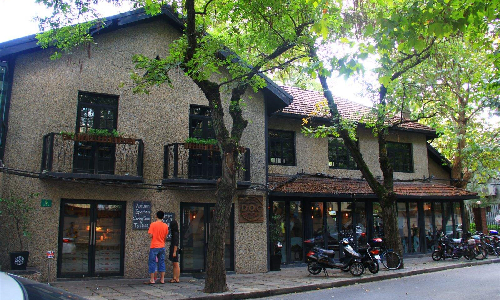
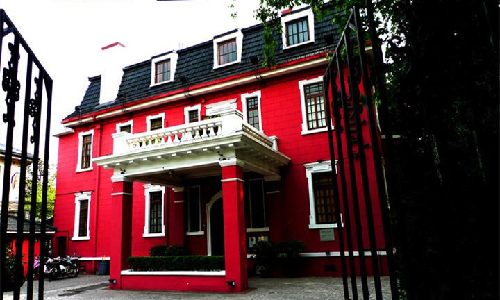
Today we will start with a visit to Jade Buddha Temple. There are two jade Buddhas in the temple, one sitting Buddha and one reclining Buddha. Both of these two Buddhas were carved in Burma with local jade and brought back by Master Huigen in Qing Dynasty. Now Jade Buddha Temple becomes a popular temple among Shanghai local people. Buddhism requires believers to fast, chant sutras, and worship Buddha on the 1st and 15th day each China lunar month, so on these two dates, there are a lot of locals who come to pray for good health and fortune.
Then we will drive about 30 mins to visit the Yu Garden(closed each Monday) by the side of the Huangpu River. Yu Garden is a famous classical garden in the south of the Yangtze River and a national key cultural relic protection unit. Upon entering the garden, you will see a large stone with four Chinese characters "Hai Shang Ming Yuan" which means a famous garden on the sea. These four Chinese characters were written by China’s former president Jiang Zemin in 1999. In the Hexu Hall, you can see a set of furniture which were all made of banyan root and still looks like tree’s root now. The furniture includes tables, chairs, and decorative phoenixes and unicorns, which have a history of more than one hundred years. After a tour in the Yu Garden, we could also spend some time on the Yuyuan Old Street. There are a lot of stalls selling souvenirs, traditional local food, and local authentic handcrafts. Here you can buy cheap silk products, like silk scarves, silk dresses, silk hats, etc. Our lunch will be at a local restaurant.
After lunch, we will go to the other side of the Huangpu River to visit the Shanghai Tower. Shanghai Tower is a huge high-rise landmark skyscraper in Shanghai, designed to be taller than the Shanghai World Financial Center, with a building area of 433,954 square meters and a total height of 632 meters. There are the world's fastest-rising elevators, 18 meters per second, which takes only 55 seconds to reach the 118th floor. Its max speed of the elevator can reach 64 kilometers per hour. It will be a little slower while descending, 10 meters per second, taking 70 seconds to descend from the 118th floor to the 1st floor. On January 6, 2020, it was selected as one of the ten new landmark buildings in Shanghai. After enjoying the full view of the Shanghai city from the 118th Observation deck(546 meters high) of the Shanghai Tower, we will drive you back to the hotel.
Your guide knows all the best restaurants and bars, so you can experience true Shanghai nightlife once your tour is done.
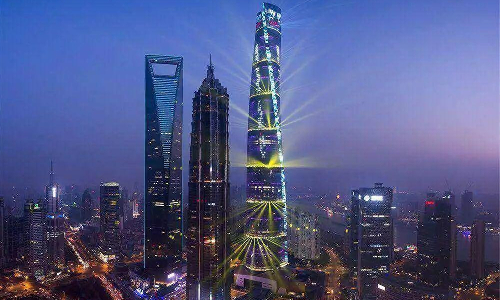
Today, we will go to Zhujiajiao Water Town by driving for about 1 hour (50KM). It is close to Dianshan Lake, with small bridges and flowing water, and is full of old-fashioned atmosphere. The buildings in the town were mostly built with a style of Ming and Qing Dynasties (1368-1912). Walking through the small town, you will feel like traveling back to hundreds of years ago. We will also take a boat tour to enjoy the full beauty of the local houses along the riverside. There are lots of interesting customs and activities, like rowing boat race(similar to dragon boat race) on the seventh day of the seventh month of the lunar calendar, flying kites on the Qingming Festival, playing ancient musical instruments on boats, etc. Apart from exploring the scenery of the ancient town, the local authentic snacks also are worth tasting, such as Fanzharou(braised pork covered with sisal rope), granny’s zongzi(rice dumpling), and smoked green beans.
Our lunch will be at a local restaurant inside Zhujiajiao Water Town.
In the afternoon, we will drive back to the city center and visit the Bund. The Bund is on the riverside of Shanghai's mother river, the Huangpu River, on which giant ships shuttle, while skyscrapers such as the Shanghai Tower, Jin Mao Tower, and the World Financial Center standing on the other side of the river. There are 52 historical buildings on the Bund, some of which are still used by some institutions, such as the Customs Building at No. 13 on the Bund, which was built in 1927 and is still the building of Shanghai Customs now. The Bank of Communications Building at No. 14 on the Bund, the youngest building on the Bund built in 1948, has been used by the Shanghai General Labor Union since the founding of the People's Republic of China(1949). Others are the headquarters of China national banks and insurance companies, as well as high-class hotels. You will have a chance to visit inside one of them and learn her history.
Next to the Bund, we will visit Nanjing Road. Nanjing Road Pedestrian Street, one of Shanghai's bustling commercial streets, has been a hub for department stores since the early 20th century, and a stroll through the area is sure to be rewarding. There are many famous authentic foods worth tasting. If you have the chance, tasting crabmeat dumplings at Shen Dacheng Restaurant, tasting famous Granny's Braised Pork at Jin Yi Restaurant, tasting fresh meat moon cakes at Laodafang Restaurant, and tasting the local drunken shimps at Shao Wansheng Restaurant can be put in your list.
After some free shopping time, we will go back to the hotel.
Night options:
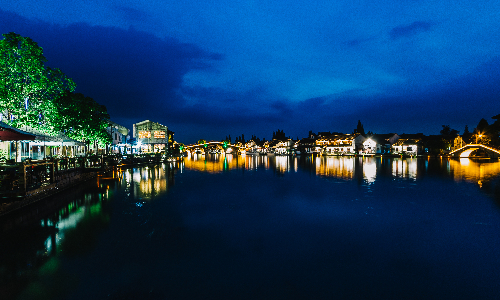
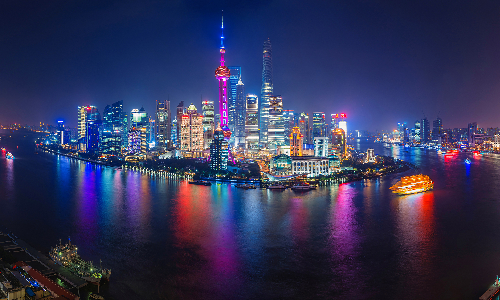
 Guilin
Guilin In the morning, your Shanghai guide and driver will escort you to Shanghai airport and you will take the estimated flight FM9349 10:00/12:35 to Guilin. After you land in Guilin, you need to get your luggage first. Then you will meet your Guilin tour guide at the airport arrival lobby. You will be transferred to the hotel and check in.
Free time suggestion: Today you may have a lot of free time in Guilin. If you don’t want to stay at the hotel, you could go to Zhengyang Pedestrian Street. Here you can taste authentic local snacks and buy local souvenirs. Guilin rice noodles are something you must taste when you travel to Guilin. You can choose to have soup noodles or fried noodles according to your preference.
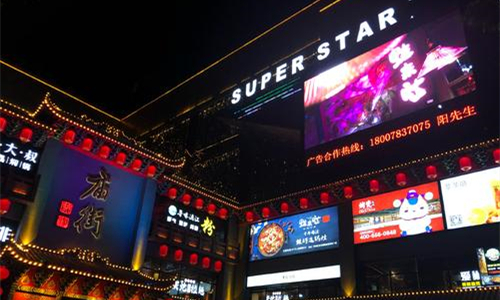
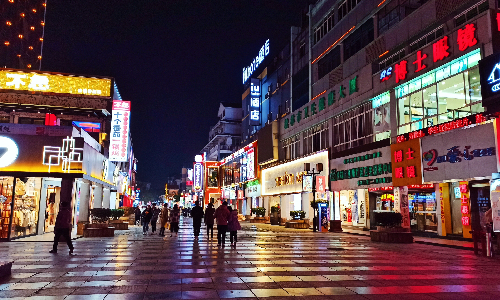
 Yangshuo
Yangshuo The best way to get to know the beauty of the Li River is to take a Li River Cruise. It takes around 4 hours from Guilin to Yangshuo. Lunch is included onboard. We will pass the Guilin Li River Scenic Area. Guilin Li River Scenic Area is centered around the city of Guilin, which is connected by the Li River from Xing'an Ling Canal in the north to Yangshuo in the south. The Guilin city is dominated by karst landscapes. The peaks on both sides of the Li River look like they have been split at the top by a knife. This is because of long-time erosion by water. Drifting on the Li River is like being sandwiched tightly between the peaks on both sides. When you pass the very high peaks, you may worry about it falling down and hitting you because it is vertical and you are passing right under it.
After disembarking from the pier at Yangshuo, we will go to visit West Street. Yangshuo West Street is a pedestrian street in Yangshuo County. Located in the center of the ancient town of Yangshuo, it is about 8 meters wide and nearly 800 meters long. After more than 1400 years, it is the oldest and most prosperous street in Yangshuo. Yangshuo West Street was once the place where Dr. Sun Yat-sen gave his speeches, where the master artist Xu Beihong lived, and where leaders of more than 150 countries have visited. You will stay at Yangshuo tonight.
Optional activity in Yangshuo:
1. The Yu Long River is the longest tributary of the Li River in Yangshuo, with a total length of 43.5 kilometers.Yu Long River Rafting is an activity that makes you closer to the Li River. To Guilin, it is a pity not to visit Li River; to Yangshuo, it is a pity not to see the Yu Long River. The duration maybe 60 minutes, 90 minutes, or 120 minutes, depending on your choice.
2. Impression of Liu Sanjie is one of the "Impression Series" large-scale live-action performances created by director Zhang Yimou, Wang Chaoge, and Fan Yue. It is performed at the confluence of the Li River and Tianjia River. The stage is a two-square-kilometer water surface of the Li River with twelve peaks in the background, which is a very majestic and gorgeous.
The performance is based on the story of the classic local legend "Liu San Jie", in which the classic folk songs, ethnic customs, and fishing fires of the Li River are performed. There are more than 600 performers in the show, but no one is a professional actor. All of them are local fishermen and minority girls, which makes visitors can appreciate the authentic local life of the Li River.
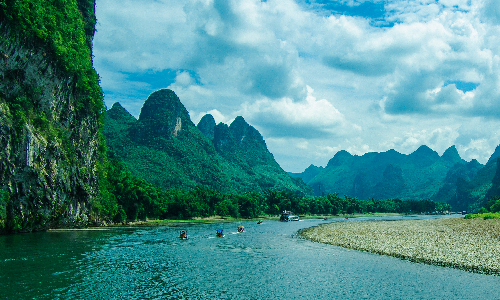
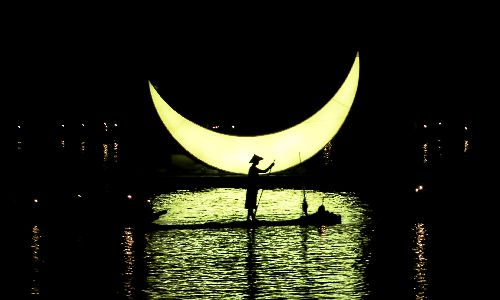
 Guilin
Guilin Xi’an
Xi’an This morning, you will go to Guilin airport from the Yangshuo hotel. Then you will take the estimated flight CA1472 16:30/18:30 to Xi’an to continue your tour. The Xi’an local guide will wait for you at the airport. (This is an estimated flight. If there is early flight in the morning at that time, we will choose that flight.)
If you arrive in Xi'an in the morning,your Xi’an tour will start from the Xi’an ancient City Wall. The City Wall is the largest and most complete ancient city wall existing in China. It was built in Ming Dynasty, with a total length of 13.7 kilometers. There are four main gates in four directions: East Changle Gate, West Ding Gate, South Yongning Gate, and North An Yuan Gate. You will have a walk on it and admire the old city Xi’an. Then we will go back to the hotel to rest.
Optional activity: The thickness of the wall can reach 12 to 14 meters, which allows people to ride bicycles on it. Double-riding bicycles and triple-riding bicycles are available here for you and your families. If you would like to experience it, feel free to let your guide know, and he will help you.
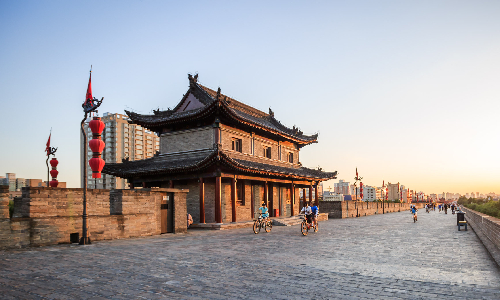

Today we will drive for 1 hour (43 kilometers) to visit the Terra Cotta Warriors and Horses Museum on the Northeast of the Xi’an city. After entering the Terra Cotta Warriors and Horses Museum, you will feel the ambition of Qin Shi Huang. There are more than 8,000 warriors. The Terra Cotta Army was actually the funeral objects of Emperor Qin Shi Huang, which fully illustrates that even death could not stop Emperor Qin Shi Huang's dream of conquering the world. If you look carefully, you will find that no two terracotta warriors are the same among thousands of warriors. Till now, more than 150 foreign heads of state have visited the Terracotta Warriors in Xi'an and have expressed their wonder and praise of the Terracotta Warriors in different languages. After visiting, we will have a simple lunch nearby.
Then we will drive back to the city to visit the Small Wild Goose Pagoda(closed each Tuesday). The Small Wild Goose Pagoda was built in 707 as a pagoda of Jianfu Temple in Chang'an city(now Xi’an) during the Tang Dynasty. Jianfu Temple is one of the famous "Three Great Translation Sites in Chang'an" in the history of Chinese Buddhist scripture translation. After visiting the pagoda, you will have the opportunity to learn Chinese calligraphy there. The teacher will teach you how to use a brush to write a Chinese character. Then we will go back to the hotel for overnight.
Optional activity: Xi'an was called Chang'an in ancient times and became the most prosperous in the Tang Dynasty. Therefore, Xi'an is the representative and successor of Tang culture. Tang Dynasty Music and Dance Show(20:30-21:40) will take you back to 1000 years ago to see the fantabulous royal dance of Tang Dynasty. Before the show, you will have a royal dumpling dinner (18:50-20:10) first.
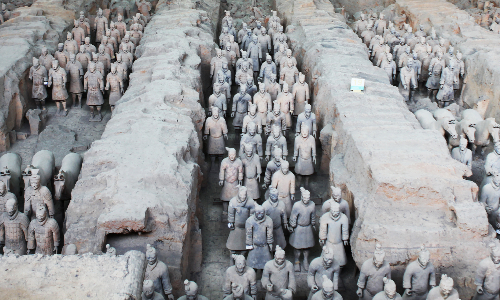

 Beijing
Beijing This morning, you will take the estimated train G26 09:20/13:50 to Beijing. You will experience the Chinese high-speed train today. It takes about 4.5 hours from Xi’an to Beijing. The Beijing local guide will wait for you at the Beijing train station.
Upon arrival, your Beijing tour will start from the Hutong. Hutongs are a cultural feature of Beijing and also the roots of old Beijing. In the Hutongs, you may see the old men either with a cup of tea in one hand and a fan in the other, sitting in front of his house, or carrying a birdcage to tease the birds. Life here is very pleasant, and you will be part of them. To experience the taste of old Beijing, a hutong tour is an essential choice, and the best way to visit Hutong is taking a rickshaw tour. In the middle of the rickshaw tour, you will visit a local family in the Hutong. The owner of the house will tell you some interesting stories about Hutongs. You can also talk with them about how do traditional Chinese families educate their children, and how do they celebrate festivals. You will have a deeper understanding of Chinese family culture then. And then we will drive back to the hotel overnight.
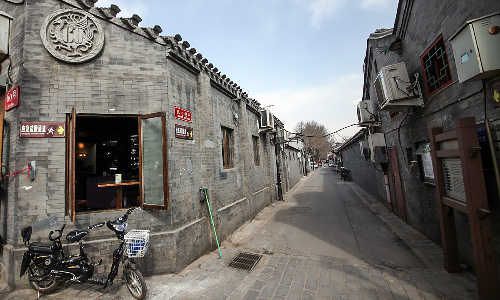
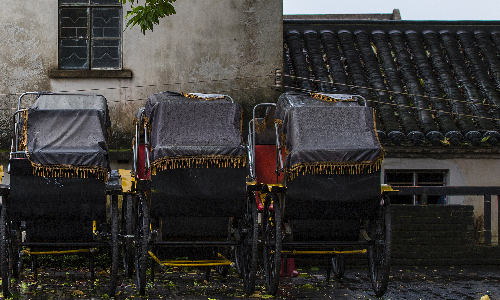
After buffet breakfast at the hotel, your guide will meet you at the hotel lobby. There are three World Cultural Heritages in your tour today.
Tian’anmen Square is located in the center of Beijing city which is also the largest city center square in the world. Today our tour will start from there.Tian'anmen Gate was the main gate of the imperial city during the Ming and Qing Dynasties, originally named "Chengtian Gate" and renamed Tian'anmen in 1651, the eighth year of Emperor Shunzhi in the Qing Dynasty. In the past, only the emperors were allowed to enter and exit the gate. On October 10, 1925, the National Palace Museum(the Forbidden City) was opened and Tian’anmen Square was opened to the public then. On October 1, 1949, the founding ceremony of the People's Republic of China was held in Tian’anmen Square. On that day, Chairman Mao stood on the Tian’anmen Gate Tower and announced the founding of the new China in front of 300,000 people standing in the square. The Chinese five-star red flag of the new China was also raised here first time. Since then, every major military parade in China has been held here, with the country's leaders standing on the Tian’anmen Gate Tower to watch the ceremony. In 1986, Tian’anmen Square was named one of the "Sixteen Sceneries of Beijing".
Walking through Tian’anmen Square, we will reach our next stop – the Forbidden City(closed each Monday). The buildings of the Forbidden City are distributed along a north-south axis, following a strict rule of symmetry. The buildings on this axis are also the center of the Forbidden City. Here you will visit the Hall of Supreme Harmony, where grand ceremonies were held in the Ming and Qing Dynasties. All 24 emperors of the Ming and Qing Dynasties held grand ceremonies in the Hall of Supreme Harmony, such as the Emperors’ enthronement, the Emperors’ wedding, the enthronement of the Empresses, the appointment of the generals to the army, etc. You will also see many other halls and palaces, and also the imperial garden. In 1987, the Forbidden City was announced as World Cultural Heritage. After visiting the Forbidden City, we will have lunch nearby.
Then we will drive to the Temple of Heaven. The Temple of Heaven symbolized the royal power granted by heaven. It was the highest level sacrificial architecture in ancient China. It was built at the highest level of Chinese sacrificial architecture. The emperors of the Ming and Qing Dynasties prayed to heaven for a good harvest for the people here. The Qinian Hall is the main building of the Temple of Heaven. Standing on the big steps of the Qinian Hall, you can feel the solemnity of ancient imperial sacrifice. In 1911, the Xinhai Revolution put an end to China's 2,000-year-old feudal monarchy and the 5,000-year history of sacrificial rituals in China. In 1918, the Republic of China turned the Temple of Heaven into a park and opened it to the public. In 1998, Temple of Heaven was announced as World Cultural Heritage.
Our last stop today is the Summer Palace. The Summer Palace is a royal garden of the Qing Dynasty, the largest classical garden in China, covering an area of about 290 hectares, and was inscribed on the World Heritage List in 1998. We will take a boat tour to enjoy the lake view in of the Summer Palace.
After the tour, we will go back to the hotel. Here, you will see the Seventeen-hole Bridge. It is located on Kunming Lake and is the largest stone bridge in the garden. The bridge is 8 meters wide and 150 meters long and consists of 17 bridge holes. There are more than 500 vivid stone lions of different sizes and gestures carved on the railings on both sides of the bridge. When you walk on the bridge and imagine emperors standing here to enjoy the lake view,you have a feeling traveling back to China Qing Dynasty.
Options:
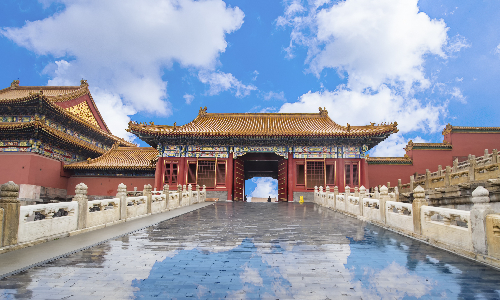
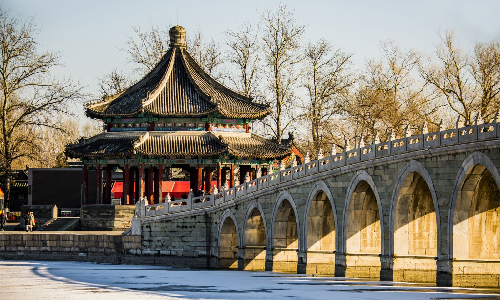
Today, we will visit Ming Tombs and the Great Wall.
After breakfast, we will drive 1 hour (50KM) to visit the Ming Tombs. The Ming Tombs is located at the foot of Tianshou Mountain. It is located in a small basin surrounded by mountains in the east, west, and north, with a plain in the middle and a small river winding in front of the tomb. We will visit the Ding Tomb, which is the only one being excavated among the 13 Ming Tombs, covering an area of 182,000 square meters. It is the tomb of the thirteenth emperor and his two empresses in the Ming Dynasty. In 1956-1957, Chinese archaeologists excavated the underground palace and unearthed more than 3,000 pieces of various artifacts, including gold, silver, jade, jewelry, etc. Among them, you will see an exquisite crown. It is 24 cm high, 20.5 cm in diameter, and weighs 826 grams. There are two gloden dragons on the crown with their heads up, facing each other. A huge pearl is embedded in the middle. It represents the extremely high level of Ming Dynasty craftsmen's skill.
And then we have lunch at a local restaurant on the way to the Juyongguan Pass Great Wall. Juyong Pass, located about 50 kilometers northwest of Beijing, is a long-established pass on the Great Wall. Due to the dangerous topography of the Juyongguan Great Wall, it was known as the "Number One Pass in the World" in ancient times. After hiking on the Great Wall, we will go back to the hotel to rest.
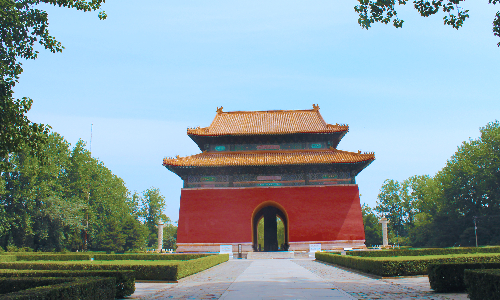

Today, you will say goodbye to China. The guide will take you to the airport according to your flight schedule and help you with your luggage and check-in.
| City | Five Star hotel list | Four Star hotel list |
|---|---|---|
| Shanghai | Ocean Hotel Shanghai | Courtyard by Marriott Shanghai Central |
| Guilin | Lijiang Waterfall Hotel | Guilin Bravo Hotel |
| Xi'an | Tianyu Gloria Grand Hotel Xi'an | Sunworld Dynasty Hotel |
| Beijing | Sunworld Dynasty Hotel Beijing Wangfujing | Sunworld Hotel Wangfujing |
 |
![]() About your child or infant, please contact us for a discounted price.
About your child or infant, please contact us for a discounted price.



We started with a few days in Beijing & ended in Shanghai, from where we visited the Forbidden City and Great Wall. In between we visited Terra Cotta Warriors Museum, Panda Base, Shanghai Disneyland.

We had a wonderful holiday in China which will remain long in the memory. China is a breathtakingly beautiful country full of splendid temples and palaces, mountains and rivers, peaceful rural scenes and bustling shopping streets.
 QUICK ENQUIRY
QUICK ENQUIRY